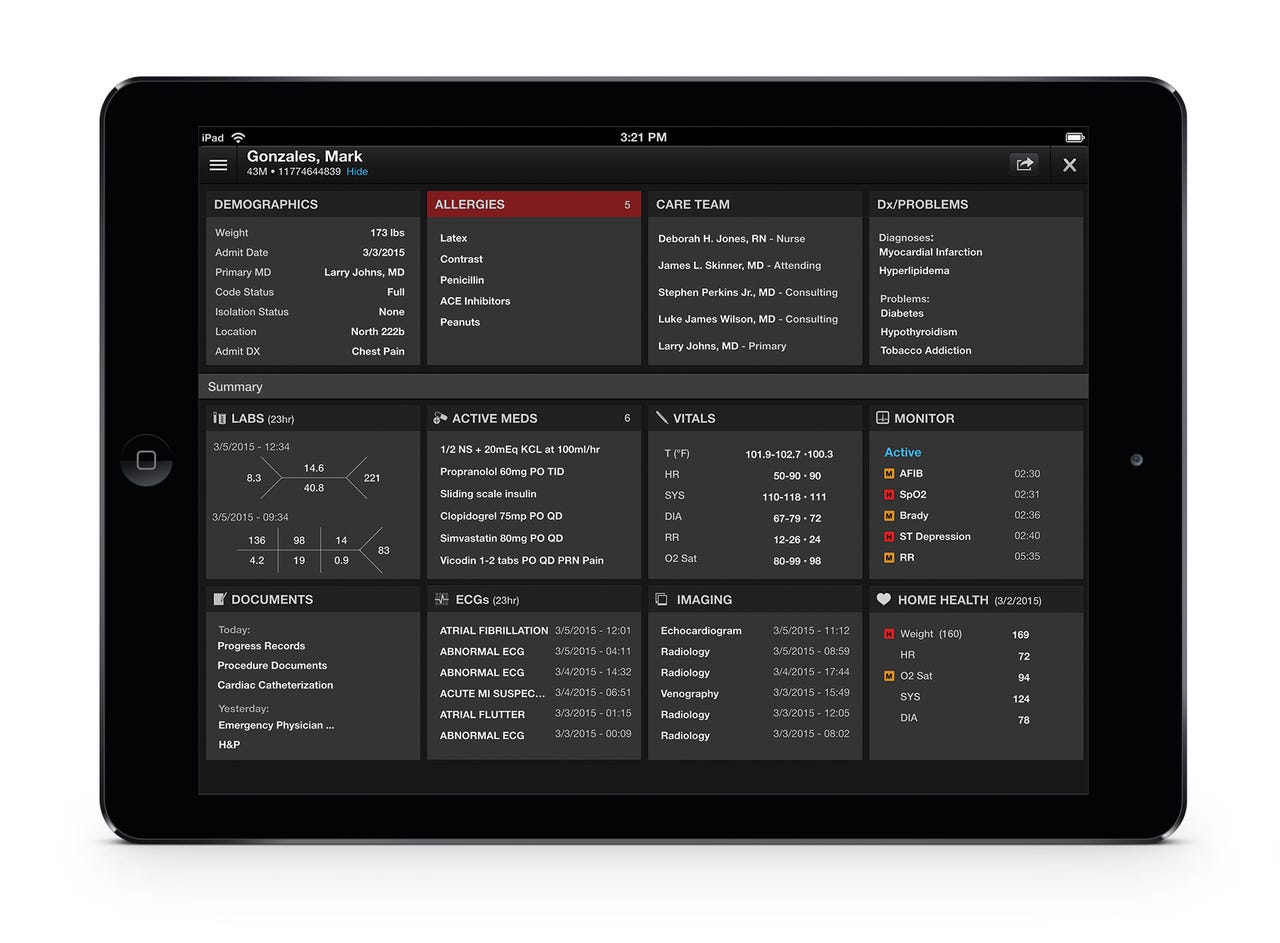AirStrip CEO Portela on health data, wearables, Apple and reinvention


AirStrip CEO Alan Portela is betting that patient monitoring, data sharing and communications can be improved from the outside.
The company, which has been around for 11 years, has been focused on medical device mobility since inception. From EKGs to fetal monitoring to diagnostic tools, AirStrip is aiming to coordinate information from multiple data sources and becoming a silent partner in facilitating health outcomes.
AirStrip, backed by Sequoia, got a big plug from Apple when the company demonstrated an Apple Watch app at its iPhone event earlier this month.
Related: Apple Watch has 10,000 apps; Makes third party developer case
We caught up with Portela to talk shop, healthcare reinvention and data silos. Here's a look at the key takeaways from Portela:
Data integration is key. AirStrip started as a company involved with mobilizing data for medical monitoring systems well before apps and what was shown during the iPhone launch event, said Portela. As a result, AirStrip has to absorb data from multiple systems. "As the company evolved we had to mobilize data for electronic health records, bring in secure messaging and ultimately images," said Portela. "We have to take multiple data sources from multiple vendors. As we expand into the next generation of monitoring our goal is to monitor patients outside of the hospital."
14 Apple Watch apps to keep you productive
Patient engagement. Portela said AirStrip aims to become a silent partner to patients as the company's platform brings data to the provider. Today, patient engagement isn't ready. "Phase one is to connect the sensor to the device and send to caregivers via phone, tablet or watch and other devices. That data goes to the cloud and the decision maker," said Portela. "Where we want to go is to good patient engagement where complications are monitored and we can reach out to the patient who hasn't moved 500 steps in a day for the last three weeks."
AirStrip is agnostic. Although AirStrip received a good bit of attention from being on stage at Apple's iPhone event earlier this month, the company has had a long standing partnership with Samsung and works with Microsoft. "We run natively on all operating systems. We're agnostic to the device," explained Portela. "But Apple has been more proactive about working with us to figure out how to improve communications."
Consumers will push healthcare reinvention first. Healthcare is being revamped from the outside in, said Portela. Why? Hospital and healthcare systems are still plagued with data silos and there is little incentive to break those information stores up. Portela noted that the White House outlined a roadmap to data sharing to 2024. The catch? Vendors don't have to make data systems interoperable until 2020. "We need to open up that data," said Portela.
On the other side of the equation, patients are moving to a value-based healthcare model. And there's a shortage of care givers. Meanwhile, consumers have access to multiple devices that can track basic health information as well as monitoring devices. Add it up and there will be a big need for patient monitoring outside of the hospital. "I have more hope on patient monitoring outside of the hospital because it's all new. On the inside, records are silos," said Portela. "Patient monitoring at home will have access to the latest technologies such as analytics, cognitive computing and real-time processing engines listening to data."